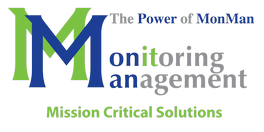Why Do I Need a Humidifier?

Picture from David Blackwell on Flickr.
Does your office, production line, store or hospital feel like the picture looks?
Today's high tech environment requires meticulous control of humidity to eliminate static electricity, ensure quality manufacturing processes, preserve precious documents and works of art, and provide comfort while adhering to Indoor Air Quality standards.
The specific reasons to humidify are as numerous as the applications, but the purpose is common across the board: to eliminate problems that can damage products, ruin buildings, or jeopardize health.
Shocking Results of Low Humidity
When RH reaches levels below 35%, static electricity may develop on surfaces and materials. Static electricity is not only annoying; it can wreak havoc on computers by burning microchips, and wiping out memory cards.
Elimination of static electricity also greatly reduces the risk of solvent fires in the printing industry - commercial presses develop extraordinary amounts of electricity at the roller and ignite solvents in the ink wells.
And if you ever wiped your finger across your television screen you know that static electricity attracts dust, a real problem in the plastics and films manufacturing process where dust can ruin a product or in the healthcare industry where dust can kill.
Humidity is Healthy
Indoor Air Quality affects man and machine and both operate best at optimum environmental conditions and IAQ and IEC standards are forcing manufacturers and building owners to adjust their management of air quality control.
If a building's main HVAC system does not have the capacity to maintain RH levels within a comfort zone of 50% to 60%, then proper humidification can help reduce adverse affects of occupant discomfort, bacteria growth, viruses, fungi, mites, allergic reactions, respiratory infections, chemical interactions and ozone production.
Several studies have proven the health benefits of proper humidity levels. This study proposes a link between low humidity levels in the winter and seasonal cold and flu problems.
According to that government study, keeping indoor relative humidity levels between 40%-70% minimizes the infectivity of organisms such as bacteria and viruses.
We're Not Blowing Smoke
But it's not just high tech data center or industrial/pharmaceutical environments that need good humidity control. Even less flashy buildings like food storage and tobacco industry need control over humidity and moisture levels.
Tobacco needs a very specific humidity level in order to cure and store properly. Too dry and the tobacco leaves crack and lose flavor. Too moist and the risk of mold or insect infestation increases.
Even if you don't use tobacco, it's still very interesting to learn about the importance of proper humidification in virtually all aspects of our lives.
Whether you are a homeowner, facilities manager or business operator, you need humidification control in your building.
MonMan has certified humidification specialists on staff to help evaluate your facility and recommend a humidification solution that fits your budget.








